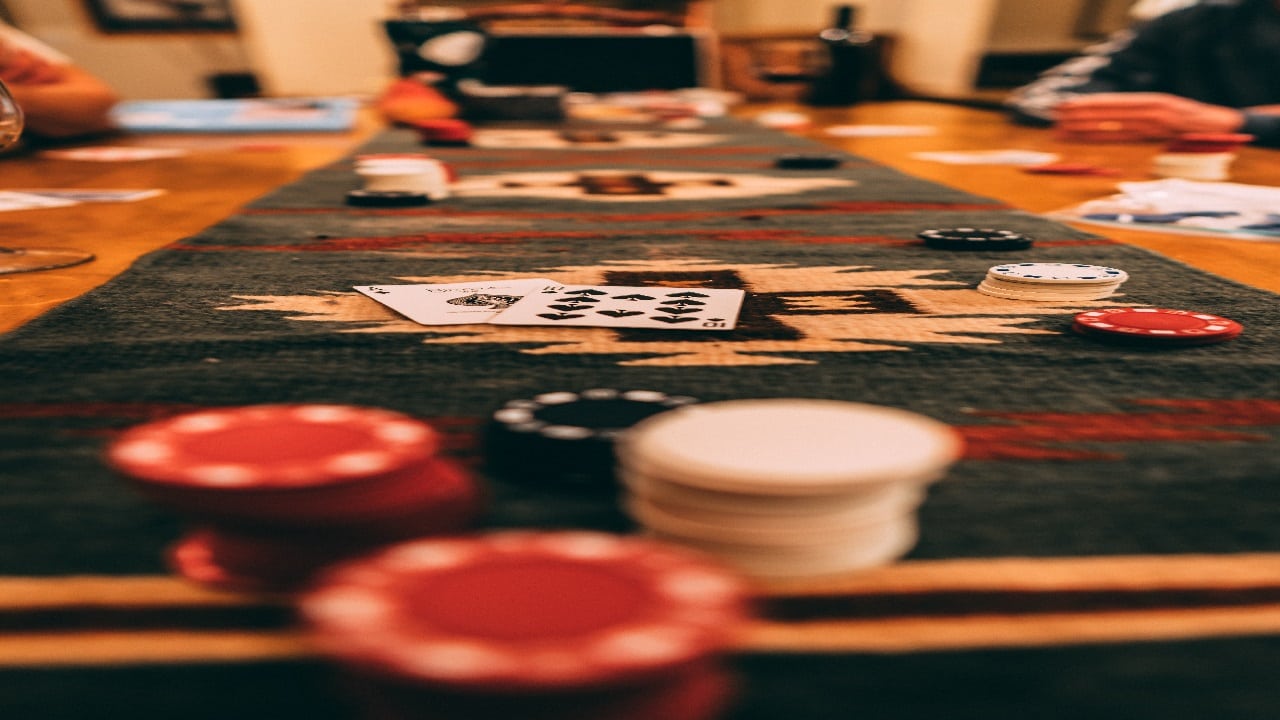Let me tell you about the modern slot machines. They've got this spooky power to reel folks in and not let go. I've seen it happen – people lose their jobs, their loved ones, and some, like Scott Stevens, they even lose their lives over it.

So, there was this one Monday morning, August 13, 2012, Scott's packing up his hunting bag, right? He slips it into his Jeep Grand Cherokee and then, he goes to hug his wife Stacy. They've been married for 23 years. ""I love you,"" he says to her. It's heart-wrenching, really.
Stacy thinks Scott's off for a job interview, followed by a sit-down with his therapist. But nope. He drives 22 miles from their home in Steubenville, Ohio, straight to Mountaineer Casino in West Virginia. He checks his bank balance at the casino's ATM: $13,400. Not bad, right? He heads to his beloved slot machine, Triple Stars. It's $10 a pop for a spin. He's probably thinking, ""This time it's gonna save me.""
But it doesn't. He goes through $13,000 in like four hours, chasing that payout, plugging any small wins right back into the machine. Finally, he's down to his last $4,000 and decides to call it quits what google did to me.
Uncover More Stories from December 2016
If you're curious, there are more stories to sink your teeth into from this issue. Go ahead and find your next great read.

Stevens, 52, leaves the casino and writes this five-page letter to his wife Stacy. He used to be COO at Louis Berkman Investment, so he knows his finances. He's laying it all out for her, how to keep her credit good and not get stuck with his debts. He's telling her about the $4,000 check, how to handle the tax stuff, and to get herself some Social Security benefits. The guy's even planning his own cremation.
In the letter, he's pouring his heart out, saying he's bawling his eyes out thinking about his love for her and their three girls. ""Our family's only shot is if I'm not here to drag us down,"" he writes. ""I'm so sorry to put you through this."" It's just gut-wrenching.
He mails the letter and the check at the post office, then heads over to the Jefferson Kiwanis Youth Soccer Club. He's been a big supporter—raised funds, took care of the fields, and watched his daughters play there.
Stevens then makes a couple of calls. He calls Ricky Gurbst, a lawyer from the firm that used to represent Berkman, the place he worked for 14 years before they found out he was embezzling to fund his gambling habit and gave him the boot. He asks them to keep paying his girls' college tuition.
Next, he tells Gurbst he's gonna end his life trendsnowcasinos.com.

""That's what I'm about to do,"" he says, and just hangs up.
He then calls J. Timothy Bender, a tax attorney who's been helping him with the IRS probe into his embezzlement. Stevens had been acting tough, saying he'd take his punishment, but now he's coming clean about his suicidal plan. Bender is freaking out, trying to stop him, but Stevens is like, ""I've made up my mind."" Click.
At 4:01 p.m., Stevens texts Stacy, ""I love you."" He sends the same message to his daughters.
He takes off his glasses, his glucose monitor, his insulin pump – he's diabetic, you know – and tucks them into his lunch bag with the uneaten sandwich and apple.
He gets his shotgun ready, sits on the railroad ties in the parking lot, and dials 911 to tell them what he's about to do.
Scott Stevens wasn't always a gambler. He's from Rochester, New York, got himself a fancy business and finance degree from the University of Rochester, and built a successful career. He got in good with steel tycoon Louis Berkman and made it up to COO. The guy was super careful with money, both at work and at home. When he first met Stacy in 1988, he was all about her getting rid of her credit card debt. ""Your credit is everything,"" he'd say.

They get hitched the next year, start a family with three daughters, and have this cozy life in Steubenville, all thanks to his job at Berkman's: six-figure salary, three cars, memberships to country clubs, trips to Mexico. Stevens was all about his girls, putting himself into stuff that would help them out cnn. He's fundraising for their school, setting up new science labs, and helping the French Club get to France. Weekends, he's painting the cafeteria and fixing up the school halls.
His gambling starts with a 2006 trade show in Vegas. He hits a jackpot and boom, he's hooked.
Scott and Stacy start hitting Vegas a few times a year. She's loving the shopping, lounging by the pool, sometimes hitting the slots with him. They take the kids in the summer, make it a big family trip with the Grand Canyon, Hoover Dam, and Disneyland. Back home, he's a regular at Mountaineer Casino. Over six years, what was a hobby turns into an addiction. Sure, he wins sometimes – even big ones – but he's losing way more, like $4.8 million in a year. How Aggressive Bankroll Management Impacts Your Win Rate in Poker
He keeps it all from Stacy, handling all their money, keeping separate accounts, and using his work address for all his gambling mail. Even his best buddy and brother-in-law Carl, who gambled with him now and then, had no clue. ""I was shocked,"" Carl says later. ""I didn't know that side of Scott.""
When he's out of cash at the casino, he'd write a company check, cash it, and head right back to the tables. He did this a bunch, sometimes multiple times a day. His workmates didn't suspect a thing since his job had him running around overseeing different businesses. By the time his company caught on and he fessed up, he'd stolen nearly four million bucks.
Stacy's in the dark the whole time. In Vegas, he'd always make plans to meet up for lunch. At home, he's never late for dinner. Tells her he's got office work on Saturdays, and she believes him because he's got responsibilities. When he wins a bit, he says it's from online trading. Meanwhile, they're living off $50,000 Stacy had saved, and he's draining their 401(k), their ETrade accounts, maxing out his credit cards, and blowing through a $110,000 loan from the bank.
Stacy doesn't get the full picture until the day the cops show up to tell her Scott's gone.
After that, she dives into learning all about gambling addiction and how slot machines hook people into giving away their cash. In 2014, she sues both Mountaineer Casino and the makers of the slot machines Scott played. The big question: did Scott die because he couldn't control his urge to gamble, or because he was trapped by a system designed to exploit his weakness, taking his money, his hope, and ultimately, his life?
Not too long ago, casino gambling was illegal in the U.S. except in Nevada and Atlantic City. But after the Indian Gaming Regulatory Act in 1988, casinos started popping up everywhere, and now there are about 1,000 in 40 states. Folks bet more than $37 billion a year in casinos – that's more than what they spend on sports events, movies, and music combined. Top 5 Must-Follow Gambling Gurus.
The big thing nowadays is electronic gaming machines, almost a million of them across the country, with all sorts of slot and video poker games. They're raking in profits for the casinos and causing addictions to skyrocket. Most of the cash comes from a small percentage of customers, many of whom are probably addicts, playing machines that are deliberately designed to get them into a zone the industry calls “continuous gaming productivity.” The casino folks argue that gambling addiction isn't any worse than it was back in the day when Vegas was the only game in town. But you gotta wonder, right?
"